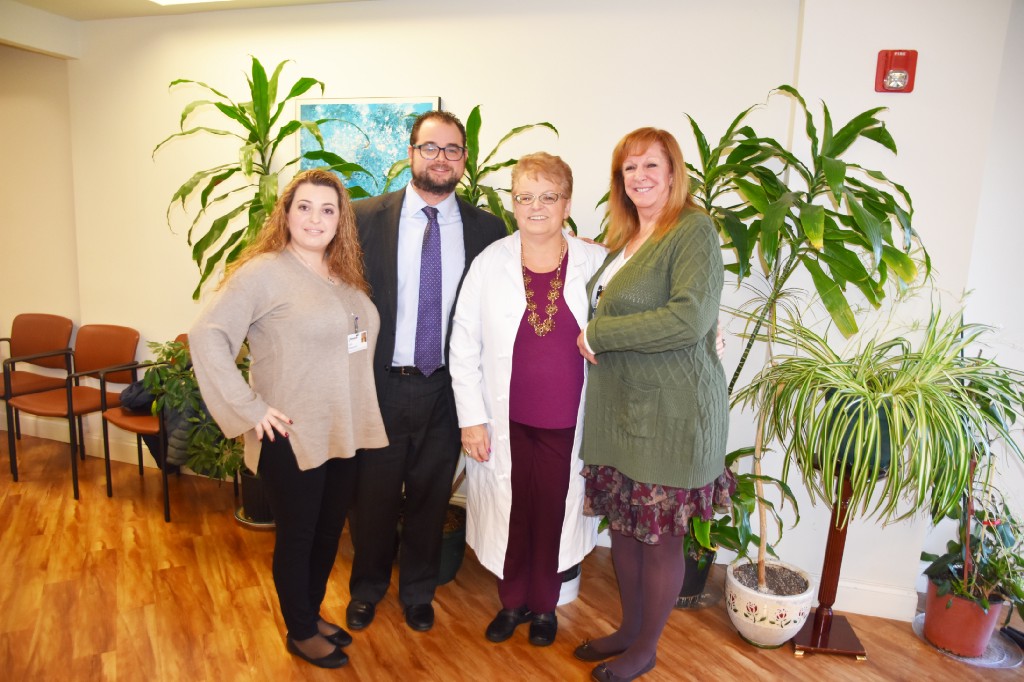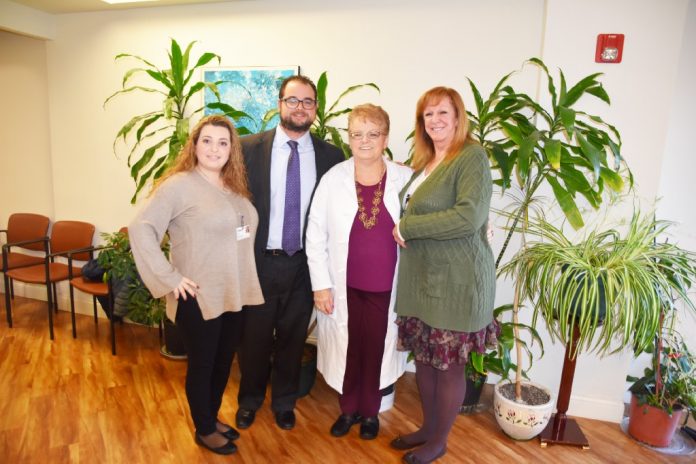Starting September 2016, the program assists Russian-speaking seniors in their efforts of going through the healthcare system.

Starting earlier this year, Einstein Healthcare Network, through its Division of Geriatric Medicine in Northeast Philadelphia, offers a Russian Patient Care Coordination Program.
This program is meant to assist the Russian-speaking seniors in their efforts of going through the healthcare system. This program was made possible by a grant from The Bernard and Etta Weinberg Family Fund, in partnership with The Jewish Federation of Greater Philadelphia.
In the spring of 2016, officials at the Einstein Healthcare Network Development office were made aware of this unique grant, and immediately reached out to Dr. Andrew Rosenzweig, Einstein’s Division Chief for Geriatrics.
Dr. Rosenzweig jumped at this proposal and knew how much it would benefit the patients at their practice.
“It felt like it was made for us,” Rosenzweig said. “You couldn’t get more of a perfect grant for what we do and need.”
In September 2016, Einstein was notified that it would be the recipient of this grant and immediately began to prepare for this exciting addition to their practice.
Rosenzweig knew this was excellent news, but was most excited for his colleague and geriatrician/internist Dr. Ellen Zagrebelsky, to hear they had won.
Dr. Zagrebelsky, born and raised in Russia, moved to the United States in 1992. Zagrebelsky moved to the Northeast and quickly realized the significant Russian population in her area.
“My practice was designed from the beginning….the aim was to see more Russian-speaking patients to Einstein, and it worked.”
Zagrebelsky continued to say that they are located “in the heart of the Russian community.”
After a couple of months of looking for suitable candidates for “Patient Care Coordinator,” Einstein was confident it had found the perfect fit with Lora Bederman.
Bederman, born and raised in Kiev, Ukraine until 9 years of age, is trilingual and fluent in Russian, Ukrainian and English.
Bederman’s job requires her to visit patients at their home, and when needed, arranges Meals on Wheels, home health aides, adult day care program services, prescription refills and other various tasks.
Bederman started on Feb. 20, but took no time to get acclimated in this new role.
“Day one she was on a roll,” Zagrebelsky said.“We had several applicants but she was the most qualified.”
Rosenzweig was confident with Bederman from the beginning and was particularly impressed with her knowledge of the community.
“She already knew the ins and outs of the community,” Rosenzweig said. “We really hit the nail on the head when we got Lara.”
For as much as Bederman’s coworkers appreciate the job she has done thus far, she is just as appreciative for this position.
“My goal is to see patients smiling. Although they come in some of them are sick, elderly, somewhat healthy. At the end of the day when I help them and I go home, I know that I helped each and everyone,” she said “It’s the most fulfilling feeling.”
One of the patients that has expressed great gratitude for the program is Ala Dua.
Dua came to the United States 52 years ago and has called Northeast Philadelphia her home for several decades. Dua spent her life moving around rather often in various countries before coming to the United States, but these experiences led her to knowing four languages — Russian, Polish, Hebrew and Yiddish — before mastering English when moving here.
Dua has gone to Dr. Zagrebelsky for the past decade and always appreciated the work she has done, but believes they are now much better off with the new Russian Patient Coordination Program.
“I told her right away (Dr. Zagrebelsky) that she hit the lottery with Lora (Bederman).”
The approximate 250–300 patients for this practice don’t only reside in the Northeast, as some travel as far as Delaware for their healthcare needs.
Zagrebelsky and Bederman’s grasp of the Russian language and culture make for quite the duo servicing their patients.
Bederman remains thankful to work for Zagrebelsky.
“I work with the best physician in the world, (Dr. Zagrebelsky),” Bederman said. “Not only is she a great physician, but she’s a great human.”
Zagrebelsky has seen the success of the program in just its first year and can’t imagine going back to working without Bederman.
“All these jobs that Lara does, we did ourselves.” Zagrebelsky said. “We were so overwhelmed because taking care of patients’ medical needs, but you need to take care of their social needs and take into account transportation, meals, homecare, housing and equipment.”
Zagrebelsky added it’s not only the Russian-speaking patients who benefit from the program, but the English-speaking patients are greatly helped by this program as well.
“English-speaking patients get the same treatment,” she said “They benefit a lot.”
Einstein Healthcare Network in the Northeast is certainly setting the bar high for other practices and recognizes how it will be a model to strive for other practices.
“I like to think we’re just finally practicing geriatrics the way it’s meant to be practiced, but it definitely has garnered a lot of attention because a lot of busy practices would say, ‘Man, we would give anything to have someone who could do the things that Lara does for our patients,’ ” said Rosenzweig.
In the first six months of the program, Bederman assisted 96 percent of all patients seen. ••
John Cole can be reached at [email protected]





